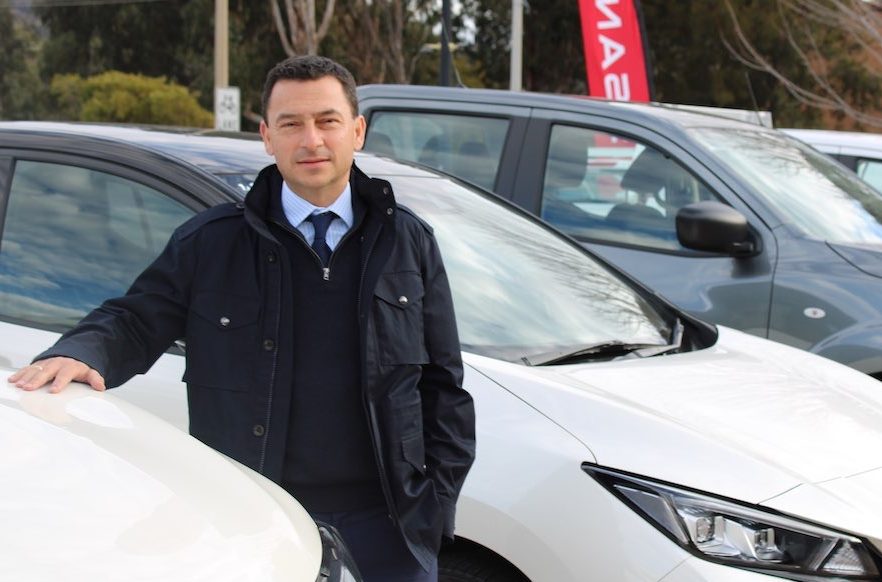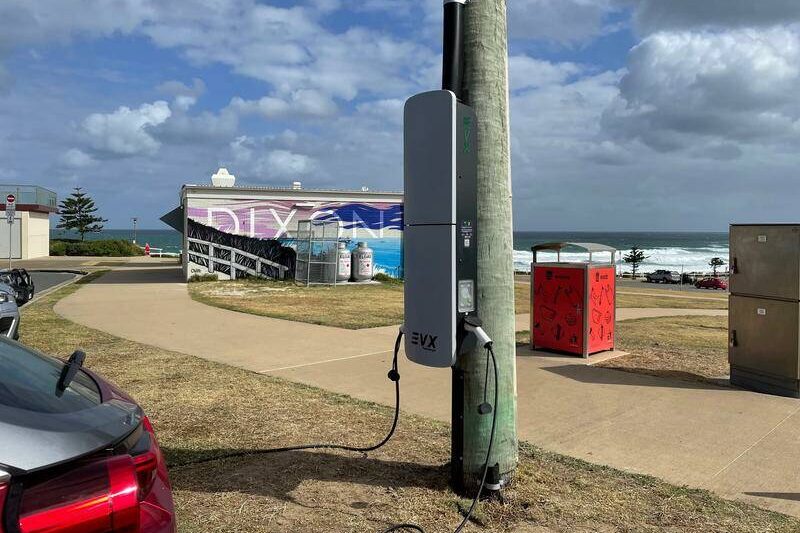
CAR dealers have been left “scratching their heads” after the ACT government’s announcement that the purchase of new petrol cars will be banned in Canberra from 2035, according to the Australian Automotive Dealer Association (AADA).
The peak body representing franchised new-car dealers says that automotive businesses in the ACT received no consultation on the policy, and that the ban has been foreshadowed in an environment of “great uncertainty”.
The strategy aims to phase out light internal-combustion engine vehicles from 2035, with a target of 80 to 90 per cent of new-vehicle sales to be zero-emissions models by 2030.
Head of Lennock Motors and representative of the ACT division of the AADA Peter Axiom says neither he, nor any other dealer he knows were consulted on the decision.
While he believes the government’s initiative is the right one in theory, he says many dealers hold concerns about the feasibility of its implementation.
“I don’t think the dealer or consumer wants a situation where the ACT has a different law to the rest of the country,” says Mr Axiom.
“It’s bizarre if we end up in this situation where an ACT resident is banned from buying a certain type of car, but they’re not prohibited in Queanbeyan, Jerrabomberra or other neighbouring areas.
“I’d have to say that if we’re not around that 75 per cent by 2030 it’s going to be very hard to get to 100 per cent by 2035, it’s just such a short space of time.
“It’s my hope there’s continual reviews of their targets and plans.”
In June the 27 countries that make up the European Union agreed to ban the sale of new petrol and diesel cars by 2035. A large number of international car manufacturers have also agreed to phase out production of internal-combustion engine vehicles over the next decade.
In the ACT, Mr Axiom says, electric vehicles currently make up around four per cent of new car sales, higher than the national average of around two per cent.
While he says the interest for ACT consumers is there, he says caution should be exercised to not lock people out of the market.
“One of my concerns is that about over 60 per cent of our cars come from Japan and Korea, and to me they don’t have those same targets as the EU. My perception is they’re further behind, and a lot of the cars they produce are for your normal mum and dad Australians,” he says.
“They’re the affordable, accessible cars, and I think we’ve just got to be careful we don’t cut that market out.
“What the Japanese brands have done, particularly Toyota, is invest in hybrids, they were a first mover on that.
“I’m not a Toyota dealer, but I have to say they’ve done a great job with that but when you read the new government document here a normal hybrid doesn’t fit the bill. In theory, in 2035, that’s a banned car.”
While Mr Axiom says that as technology evolves the price of electric vehicles may come down, he says competition for resources such as lithium and cobalt used in their production may drive the price in the opposite direction.
“The biggest component of an electric car is the battery, and if the cost of producing that or mining materials for it is going up I think that’s going to be a handbrake on putting the price down,” he says.
He also believes the ACT will have to rapidly ramp up the required infrastructure in order to hit the ambitious targets.
“It’s not too difficult to go and retrofit charge points and charging stations in homes, but when it comes to apartment blocks it’s a whole different story,” he says.
“Most apartment blocks haven’t got the infrastructure or the charge points to do that and even ones being built right at this point they have not provisioned for electric-car charging. It’ll need to be retro-fitted and it’s not cheap.
“What I tend to find at the moment is because the infrastructure is quite poor, when people are buying electric cars it tends to be their second vehicle or their primary vehicle but they’ve already got another car in their family.”
As the federal government is in control of the importation of new vehicles into the Australian market, it’s the belief of the AADA that the transition to low-emission vehicles should be a national decision.
“It’s definitely going to be difficult if it’s not a level playing field and the ACT is different from the rest of the country,” says Mr Axiom.
“I think the initiative is right, but there needs to be a national approach. We can’t treat the ACT as a separate country to the rest of Australia.”
Who can be trusted?
In a world of spin and confusion, there’s never been a more important time to support independent journalism in Canberra.
If you trust our work online and want to enforce the power of independent voices, I invite you to make a small contribution.
Every dollar of support is invested back into our journalism to help keep citynews.com.au strong and free.
Thank you,
Ian Meikle, editor




Leave a Reply